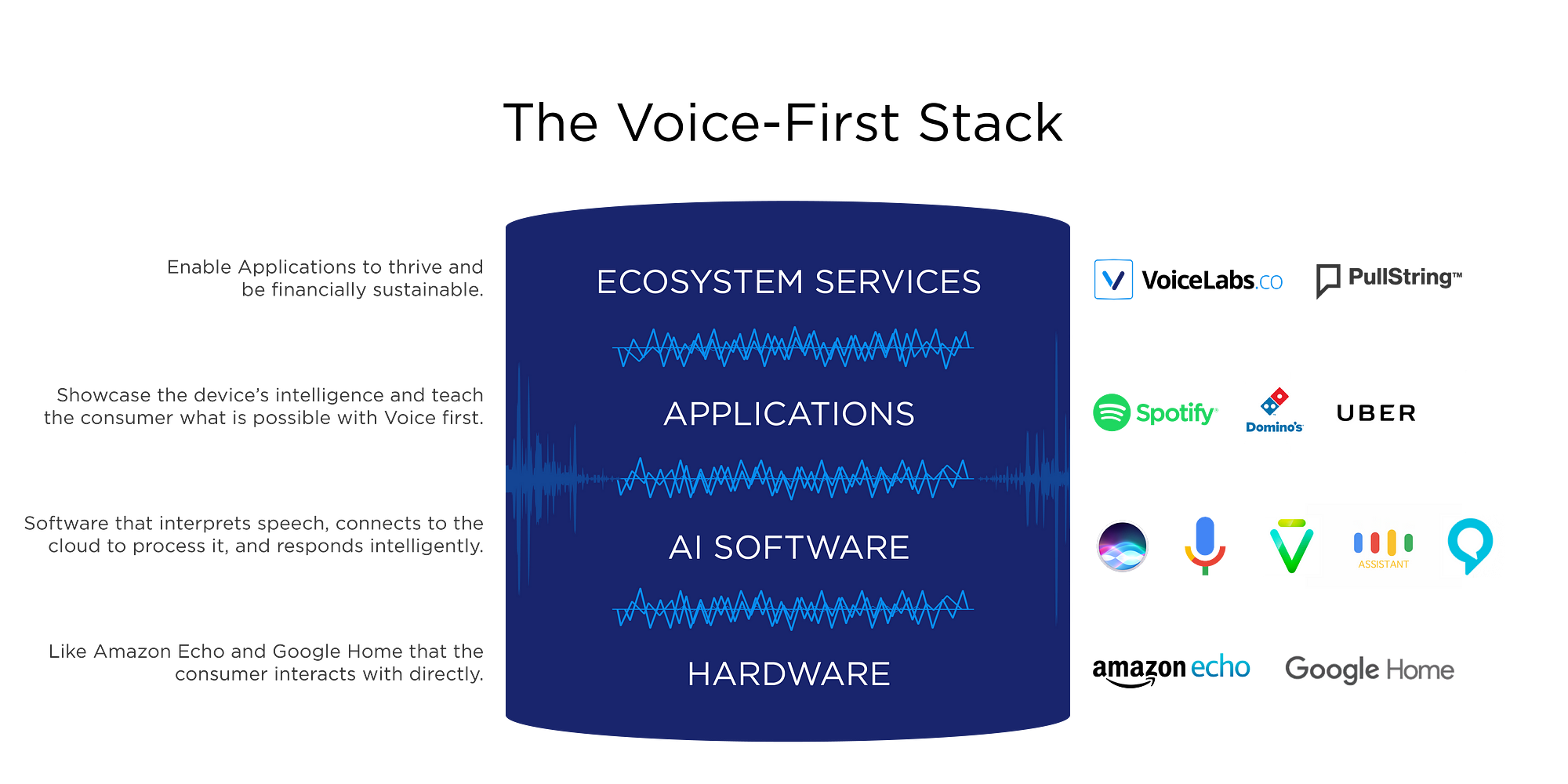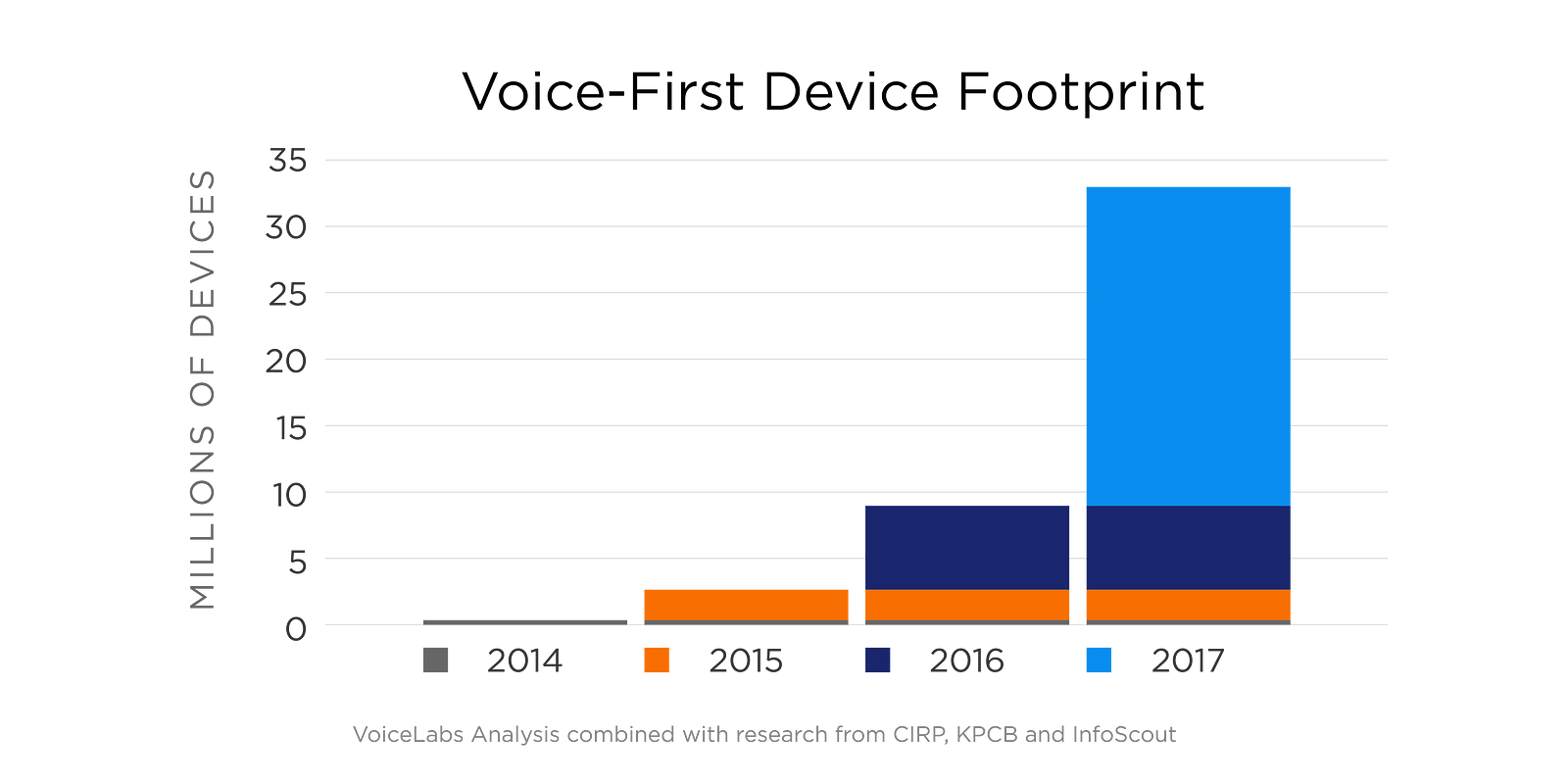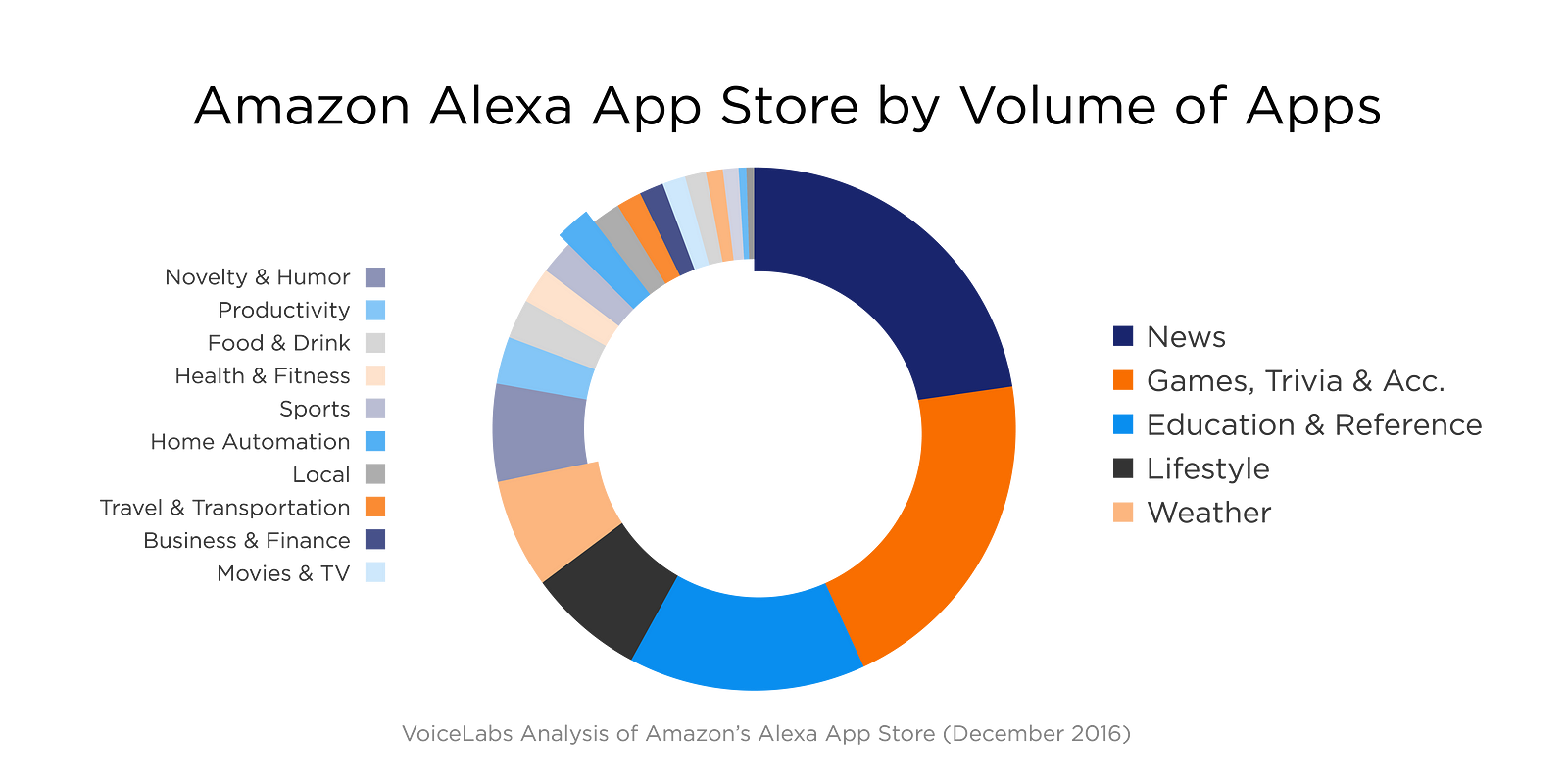Voice: The Gateway to Ambient Computing
Voice: The Gateway to Ambient Computing
- Last Updated: December 2, 2024
Yitaek Hwang
- Last Updated: December 2, 2024



Sarah Guo, an investor at Greylock Partners, eloquently captured the rise of voice in her blog post, “The Conversational Economy — Voice and the New Era of Multi-Modal Computing.”
2017 is the year voice becomes a mainstream “operating system,” as we attain “good enough” speech recognition, as voice-enabled hardware gets deployed in volume, and as an ecosystem of companies begins to build in earnest on the big voice platforms
Her analysis of voice working as an operating system complements what we covered in Last Week in the Future V16.0, where we examined Ben Thompson’s take on Alexa enabling Amazon to become the logistic provider of the future.
This week, we delve deeper into the 2017 Voice Report by the folks at VoiceLabs. Will the Amazon Echo and Google Home evolve from a novelty item to an integral product that powers our home? How will the other tech giants respond to the early duopoly of Amazon and Google? And finally, will these companies figure out how to monetize voice control?

Hardware: Winner-Take-Entire-Household
Aside from the 24.5 million devices that VoiceLabs is predicting to be shipped (compared to 6.5 million in 2016), the more interesting stat is that only 11% of current consumers are willing to buy a competing device. If the winner-take-entire-household prediction holds true, Amazon may have an advantage as it is more adept at selling third-party hardware than Google.

AI Software: Opportunity to Specialize
IoT industry as a whole is beginning to realize that IoT isn’t about the product, but rather about the end-user service (see James Schaefer’s “The Internet of Things isn’t about ‘Things’”). To that end, AI software driving the voice-platform gives each tech giant an opportunity to specialize. Jeff Dunn from BI summarized the strengths of each company:
- Amazon: e-commerce
- Google: web mining, intelligent responses
- Microsoft: gaming
- Apple: music with AirPods and Apple TV
Voice Applications: A Fragile App Store
Currently, Amazon is the only platform at scale with applications. As of January 2017, there are approximately 7000 skills available, representing a 500% growth since the second half of 2016. The developer portal for Alexa apps are relatively easy to navigate (especially with its integrations with AWS infrastructure), leading to a large volume of various apps spanning multiple categories:

However, as we saw with the premature days of the App store, quantity far outweighs quality. More than 69% of Alexa skills have zero or one customer reviews, and just 3% of the users remain active on the app on their second week (compared to 11–13% on the App store).
The voice-app store is still in its premature stages. Amazon doesn’t allow its developers to push notifications to its users and new-app discovery remains an obstacle for most users.
Ecosystem Needs
- Distribution: Currently distribution is heavily dependent on promotions, leading to our second point…
- Retention: How can Amazon and Google build apps like Facebook, Instagram, and Snapchat to retain its users for more than one week?
- Monetization: Will voice simply be an interface to Amazon and Google’s main business (e-commerce and search/ads respectively)? Or will voice-platform itself be something that these tech giants monetize inherently?
Predictions
VoiceLabs also provided the following predictions:
- Out of Apple, Samsung, and Microsoft, two will jump into the voice-driven hardware market in 2017.
- As AI software leads to specialization, other social media giants (Facebook, Snapchat) will have to rethink strategy in voice-first.
- More platforms will enable direct person-to-person communication.
The Most Comprehensive IoT Newsletter for Enterprises
Showcasing the highest-quality content, resources, news, and insights from the world of the Internet of Things. Subscribe to remain informed and up-to-date.
New Podcast Episode

What is Software-Defined Connectivity?
Related Articles





